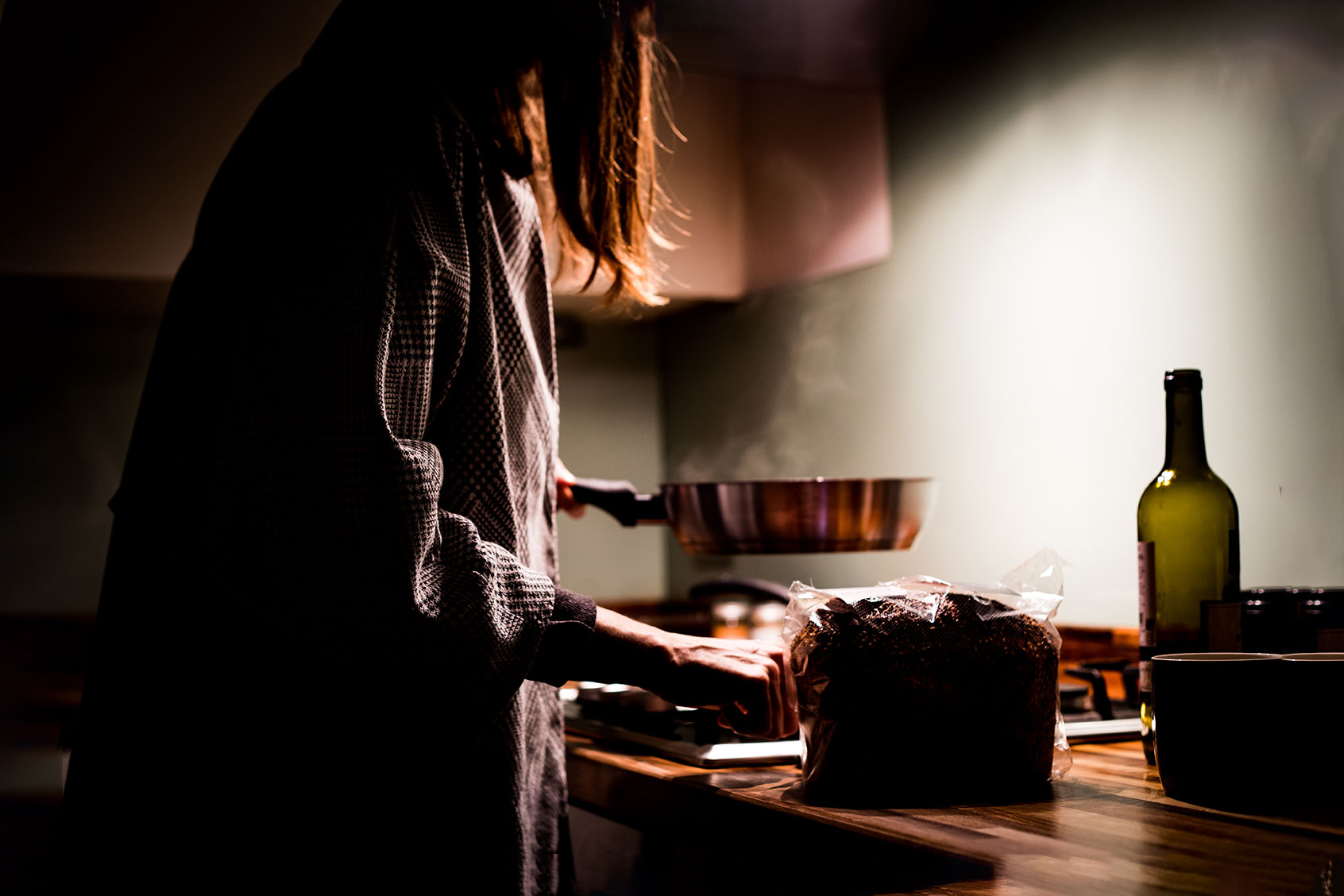The exact allure of late-night cooking is difficult to adequately describe, but I think for me — at the core of it all — is this feeling that it is somehow more indulgent than cooking in the daylight.
Not all nighttime cooking is glamorous, of course. Ask anyone who has worked in a restaurant kitchen or had to pull together dinner after getting off a second-shift job; but often, one’s reasons for getting out the olive oil and frizzling garlic at 2 a.m. are a little more compelling. Perhaps someone is coming in from somewhere interesting. Or they stayed in with someone interesting.
I think of the now-iconic scene from Nora Ephron’s “Heartburn” when Meryl Streep and Jack Nicholson’s characters go to bed together. After working up an appetite, Streep’s character dips into the kitchen and returns with a single bowl of simple, luscious pasta (and two forks).
“This is the best spaghetti carbonara I’ve ever had,” Nicholson declares. “When we’re married, I want this once a week.”
When I was in graduate school, I briefly lived in a cheap apartment catty-corner to the university hospital ambulance bay. As I moved in, I remember asking one of my new neighbors if the noise was ever too bad. “It takes some getting used to,” he responded. The statement was punctuated by a yawn, which I should have taken as the harbinger of sleepless nights that it was.
Perhaps someone is coming in from somewhere interesting. Or they stayed in with someone interesting.
Studies have shown that the majority of emergency medical calls for EMTs are made on Friday nights, and that trauma cases — the kind that typically require an ambulance response— peak on Friday and Saturday nights around midnight. That also happened to turn into my new waking time for what I began to refer to as my “second evening.”
You see, most nights, my first evening was taken up by teaching a night class from 5 to 8 p.m. So, I got in the habit of getting home, slipping in bed and taking a short nap until I naturally woke back up around midnight or one when the sirens began to really wail. That’s when I’d make dinner.
Initially, I kept things simple; I’d grab a few crackers, some cheese and plant myself in front of the television. But over time, I began to romanticize my second evenings a little bit more. I’d light a few candles so I didn’t have to rely on the glaring fluorescent overheads and pop on some music. I realized that, other than the sirens, things were actually pretty quiet at this time of night.
This became the time I devoted myself to project recipes. Inspired by Julie Powell, I worked my way through chapters of “The Art of French Cooking” and “Lidia’s Italian Table.” Some nights, after slipping into the bathtub at 3 a.m. following a meal of coq a vin or ziti, I wondered if I was throwing my body-clock into some kind of irreparable disrepair by playing fast and loose with what had been my sleeping hours. I had heard my entire life that one shouldn’t eat after 8 p.m. and that you should get an uninterrupted eight hours of sleep.
But I also didn’t have class until noon.
I asked one of my professors, who had always said his best writing hours were between 2 a.m. and 4 a.m., his opinion. He pointed out that throughout history, there are numerous accounts of what scholars call “biphasic sleep.” Especially in pre-industrial agrarian communities, it was common for entire towns to congregate between first and second sleeps. “Anyways, that doesn’t matter,” he said with a wry smile. “After all, the life of an artist does require a little risk.”
Cooking at night changed my views on solitude, as well. I lived in that apartment alone and while I was in a long term relationship at the time, it was one that, in retrospect, grew increasingly lonely through time. In spending those evenings caring for myself, feeding myself, eating with myself — I realized that I liked my own company. Especially as a woman, I don’t really think there’s anything more powerful than that.
In spending those evenings caring for myself, feeding myself, eating with myself — I realized that I liked my own company. Especially as a woman, I don’t really think there’s anything more powerful than that.
Years have passed since my initial foray into night cooking. Eventually, I got a newsroom job that had me in bed at 10 p.m. and up chugging iced coffees at my desk at six., which broke my nocturnal dining streak for quite a bit.
But then last Saturday, my schedule was beautifully thrown. I went for a late walk to the beach and stayed there for much longer than I anticipated, lazing on the sand and floating in the water. By the time I got home around 7 p.m., I downed some juice and fell asleep on top of my comforter.
When I woke up at 1 a.m., initially disoriented by my pitch-black bedroom, I groggily stumbled into the living room where my boyfriend was quietly listening to music. He grabbed me for a kiss.”You eaten?” I asked. He looked at his watch. “A few hours ago.”
“Want to turn that up? I’m going to make dinner.”
Standing in our darkened kitchen, I pulled out rigatoni, vodka, some canned tomatoes and cream. As my big pot of salted water began to boil, I looked out the window and — as I surveyed the surrounding apartment buildings and highrises — I noticed that a light flicked on in an apartment in the distance.
While it was much too far away to be sure, I liked to think that they, too, were starting dinner.
Read more
from Salon Food


